The following were not eligible to be included:
- Mobile centers: These centers cannot be reliably pinpointed.
- Adoption agencies and maternity homes: These sites serve people who have already decided to give birth and are not CPCs.
- Thrift stores and administrative offices: These sites may support CPCs but do not provide pregnancy tests, information to influence pregnancy decisions, or other services to people seeking reproductive healthcare.
Data Collection
We used the following strategies to document newly identified centers since CPC Map’s last major update:
- Center locators maintained by anti-abortion organizations
- Crowd-sourced suggestions CPC Map users submitted to us
- Standard internet searches by state
- Client-facing websites of CPCs already included in the CPC Map database
Potential new locations that met eligibility criteria and were not already included in CPC Map were added to the existing CPC Map database.
Using standard protocols, trained research assistants then reviewed each CPCs’ client-facing website to confirm its eligibility, address, and service information. Research assistants called CPCs that did not have a website or the website did not specify its address or whether the center provided free pregnancy tests or limited ultrasounds onsite to obtain this information. CPCs that provided limited ultrasounds or advertised STI or HIV testing on their websites were categorized as providing limited medical services. Those that did not were categorized as providing pregnancy tests and information only.
Data Limitations
Although standard protocols were used, CPC Map is dependent on the accuracy of publicly available information about centers and their locations. Although we receive crowd-sourced suggestions year-round, the interactive map is not comprehensively updated constantly, and we cannot guarantee the completeness and accuracy of CPC Map.

